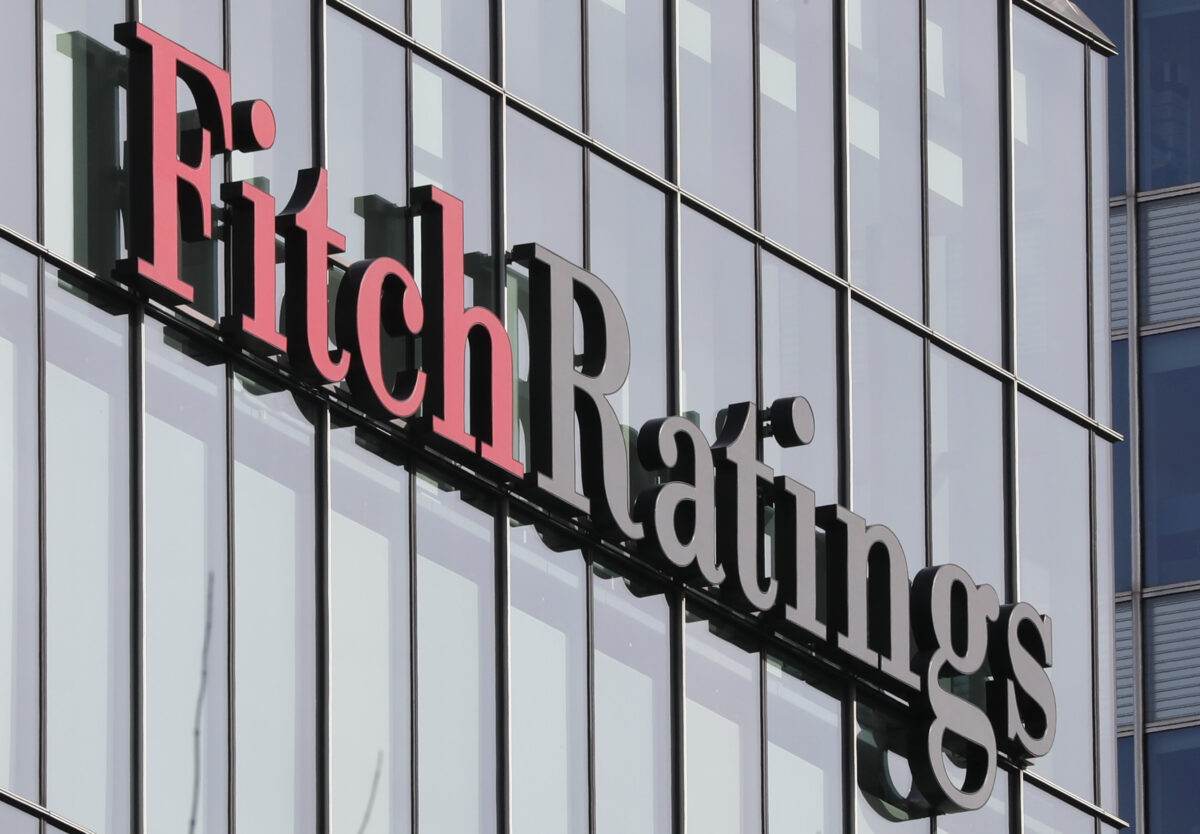

Fitch Ratings placed the United States’ AAA credit rating on “rating watch negative” on May 25, citing concerns about a possible downgrade due to the ongoing political deadlock over the debt ceiling.
As negotiations between House Republicans and The White House stretch into a third week, Fitch expressed concern about brinkmanship in the debt ceiling talks caused by increasingly entrenched partisanship in policymaking.
Time is running out to strike a deal to address an impending default, as the U.S. Treasury Department could exhaust its cash to pay bills as early as next week from June 1. The United States defaulting on its debts could have disastrous economic effects at home and abroad.
Fitch, one of the three big credit rating agencies along with Moody’s and Standard & Poor’s, explained the negative rating watch “reflects increased political partisanship that is hindering reaching a resolution to raise or suspend the debt limit despite the fast-approaching x date.”
The agency said it still expects a resolution to the impasse before Treasury’s cash position and capacity for extraordinary measures are exhausted but believes there’s now a higher risk the debt limit will not be raised in time, which would see U.S. government start to miss some of its payment due dates.
Fitch also highlighted concerns over the political brinkmanship surrounding the debt ceiling, as well as the failure of U.S. authorities to effectively address medium-term fiscal challenges that could lead to rising budget deficits and a mounting debt burden. These factors indicate potential downside risks to the creditworthiness of the United States, it said.
A Treasury Department spokesperson responded Fitch’s warning on Wednesday night, saying it demonstrated why Congress must immediately resolve the debt limit impasse.
“As Secretary Yellen has warned for months, brinkmanship over the debt limit does serious harm to businesses and American families, raises short-term borrowing costs for taxpayers, and threatens the credit rating of the United States,” Treasury spokesperson Lily Adams said in a statement.
“Tonight’s warning underscores the need for swift bipartisan action by Congress to raise or suspend the debt limit and avoid a manufactured crisis for our economy.”
During a Wall Street Journal event in London, Treasury Secretary Janet Yellen, who spoke virtually, said that “it seems almost certain” the United States would default in early June. Yellen noted that the stress is already apparent in Treasury markets.
The White House press secretary Karine Jean-Pierre on Wednesday denounced what the administration labeled a “manufactured crisis” created by Republicans who are pushing the Biden administration to promise to reign in government spending.
She attributed the risk of a devastating default to the Republicans, led by House Speaker Kevin McCarthy, calling the GOP position for spending cuts “extreme” and something that would adversely affect millions of Americans. However, she noted that both Biden and McCarthy had agreed: “Default is off the table.”
McCarthy, meanwhile, has blamed Biden for delaying the negotiations for 100 days, leaving them with insufficient time to resolve the issue now, just days before the estimated default date.
What’s at the core of the problem for Republicans is the Democrats’ desire to spend more than there is coming in, which conservatives say is fueling inflation and the cost-of-living crisis. Meanwhile, Democrats believe GOP lawmakers aren’t considering that revenues could be found in cutting “handouts” to Big Oil.
If the nation’s debt ceiling, currently at $31 trillion, is not raised, it would pose a substantial risk of a chaotic federal default, causing economic turmoil domestically and internationally. Concerned retirees and social service groups are among those making contingency plans in case of a default.




Discount Applied Successfully!
Your savings have been added to the cart.